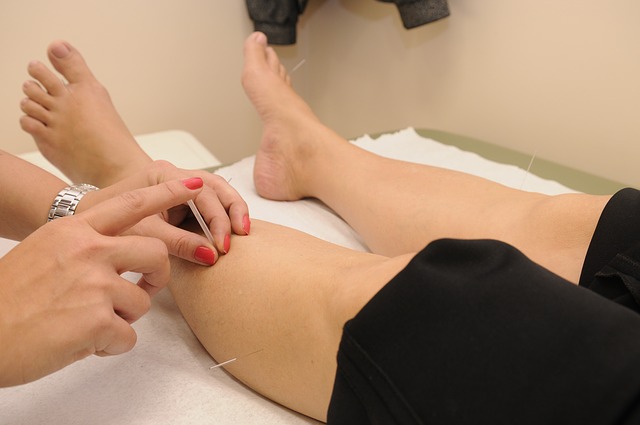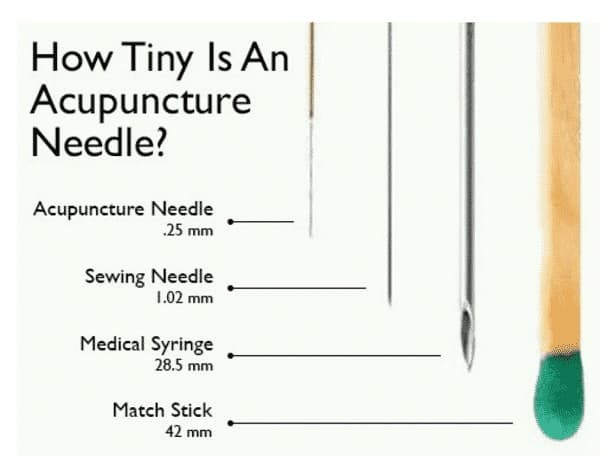Acupuncture is a form of traditional Chinese medicine that has recently gained attention in the Western world among patients, practitioners, and policymakers. Even though it has been around for many centuries, there is still a great amount of confusion surrounding it, which the following list will address.
1. What Is Acupuncture?
Historical documents have indicated that acupuncture began in China before 100 BCE. The fundamentals of acupuncture are based on the idea of qi, which is pronounced “chi” and simply refers to the energy that flows through us. It is believed that this qi travels through our body using meridian channels. Acupuncturists learn the meridian maps in order to know what points to manipulate with acupuncture needles to restore the bodies natural energy and cure ailments. Acupuncture was developed to consider the patient’s diet, exercise, and other techniques that will holistically heal the patient.

Despite the fact that acupuncture is a traditional Chinese medicine, several changes in power resulted in the decline and even ban of acupuncture for several centuries. Meanwhile, this particular form of alternative medicine was gaining ground in America. In fact, the first legal acupuncture center in the US was established in 1972 and many more have opened since then. However, it is still a struggle for acupuncture to be accepted by the government and insurance companies as formal health care providers but more than half of the states do now license and regulate acupuncturists.
2. Does Acupuncture Hurt?
There is a common perception that acupuncture must hurt because it involves needles and it can look quite intimidating. The truth is that most patients don’t report feeling pain during needle insertion. It is possible to experience a dull pain or tingling sensation during or immediately following the needle insertion, especially on areas that are further from the trunk of the body. However, it is important to acknowledge that this is a temporary reaction that may be partly psychological. Once people attempt acupuncture, they are more likely to report that it was a relaxing experience than a painful one, but there are exceptions and if severe pain persists, the patient should discuss it with the practitioner.
3. What Kinds Of Needles Are Used And Are They Safe?

Acupuncture needles are usually filliform needles, which are made of metal, usually stainless steel, but are very flexible and thin. There are a number of different sizes, or gauges, depending on the area of treatment, the patient, and the ailment. This may seem odd but it there are a number of sizes for phlebotomy needles as well because not every patient is the same. Overall, it helps to keep in perspective the size difference between regular hospital needles and acupuncture needles because there is a drastic difference. The needles that are utilized for acupuncture are not designed to take anything out of the body, just to readjust what is already there so they are much smaller and more flexible.
There is little to no risk of infection when all needles are sterile. Acupuncturists use only single use, sterile disposable needles. Acupuncturists do not reuse needles, even at different areas of the body for the same person. Needles are properly deposited in a biohazard container, which ensures safe disposal.
4. What Am I Expecting During The Acupuncture Session?
In some ways, you should prepare for an acupuncture session in the same way that you would prepare for a regular doctor appointment. Reflect on any symptoms you may be experiencing because the acupuncturist will ask about these to get an idea of which areas to treat and in what way. They will have you lay down, exposing only the area that they are working on at the time usually, and insert needles in the appropriate places. After they have placed the needles, they will usually have you lay with them in place for up to half an hour during which they may occasionally manipulate the position of the needles. The acupuncturist may also perform other techniques of Chinese medicine such as moxibustion, cupping, or reflexology all of which are available at Pro Fusion Rehab. It is important also to acknowledge that you shouldn’t expect immediate and drastic results because acupuncture takes several sessions to cure the ailment.
5. What Medical Conditions Can Benefit From Acupuncture?
Many of the patients who reap acupuncture benefits are patients who otherwise experience chronic pain. People who suffer from neck, back or head pain often turn to acupuncture to help them when medication hasn’t or as a safer alternative to prescription pain relief. It has also been widely used with cancer patients to provide them relief from the side effects of chemotherapy and radiation. Acupuncture can also be helpful in a number of areas such as digestive concerns, fertility treatment, sciatica, sinusitis, addiction and immune disorders.
6. What Are The Possible Risks Of Acupuncture?
Since acupuncture benefits extend to such a wide variety of ailments, it is easy to see the growing support in the field. However, anytime that you engage in treatment, it is critical that you are aware of all potential outcomes. Fortunately, the risks involved in acupuncture treatment are minimal. The worst outcomes are if the needle breaks off inside the patient or punctures a lung but this should not happen unless the provider is mishandling the instruments. There is also risk of infection from the needle insertion if they aren’t properly sterilized but the at Pro Fusion Rehab we strictly don’t allow the reuse of needles.
The most common risks are:
- if the patient has a bleeding disorder.
- if the patient is taking blood thinners.
- Electrical Stimulation should be avoided in patients with pacemakers.
- Pregnancy should be mentioned prior to receiving acupuncture treatments so that the treatment will be modified accordingly.
What are the side effects from having Acupuncture?
- Fatigue: Following a session of acupuncture the patient may feel fatigued or tired. This is actually a positive sign that the acupuncture is working. It is best that to have some rest and relaxation following a treatment.
- Soreness: The body parts that have received the needles during the acupuncture session will feel sore for a few days, but residual or unexpected soreness can actually help identify trigger points or underlying medical issues.
- Bruising: Most of the time bruising should not occur if the acupuncture has been properly applied, however it is a possibility and nothing to be confirmed with.
- Muscle Twitch: As unpleasant and shocking, as it may be most people experience some sort of muscle twitching or spasm during or following acupuncture sessions. It is normal and we’ll check your level of comfort during the treatment process.
- Light-headedness : Rarely, patients may faint after their treatment or experience extreme light-headedness. This is mainly due to the anxiety or scare of the needles. May happen in new patients and recommended that they do not stand up too quickly or leave immediately after the session.
- Emotional Release: For many, acupuncture can also be an emotional experience, not just physical. Rarely patients may cry and feel a variety of emotional releases throughout the treatment.
Is Acupuncturist regulated health profession in Ontario?
Yes, Effective 1st of April, 2013, Acupuncturists and Traditional Chinese Medicine (TCM) Practitioners became a
regulated health profession in Ontario.
The College of Traditional Chinese Medicine Practitioners and Acupuncturists of Ontario (CTCMPAO) regulates the practice of the health profession under Traditional Chinese Medicine Act, 2006 (TCM Act, 2006).
For more information please visit CTCMPAO website for details.
At Pro Fusion Rehab, all of our Acupuncturists and Traditional Chinese Medicine (TCM) Practitioners are licensed under CTCMPAO.
Need more information about acupuncture?
please read our blog content regarding acupuncture treatment.